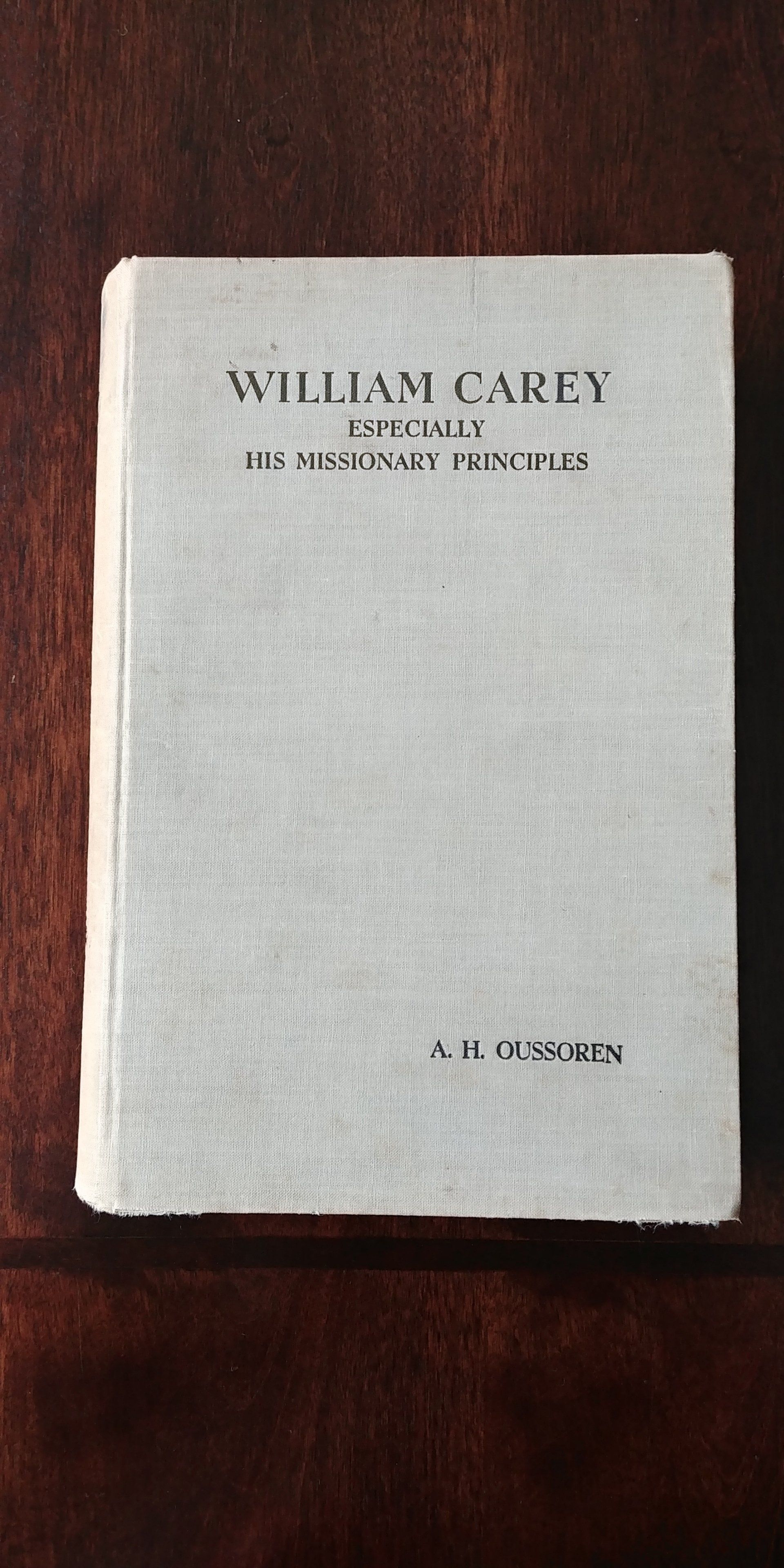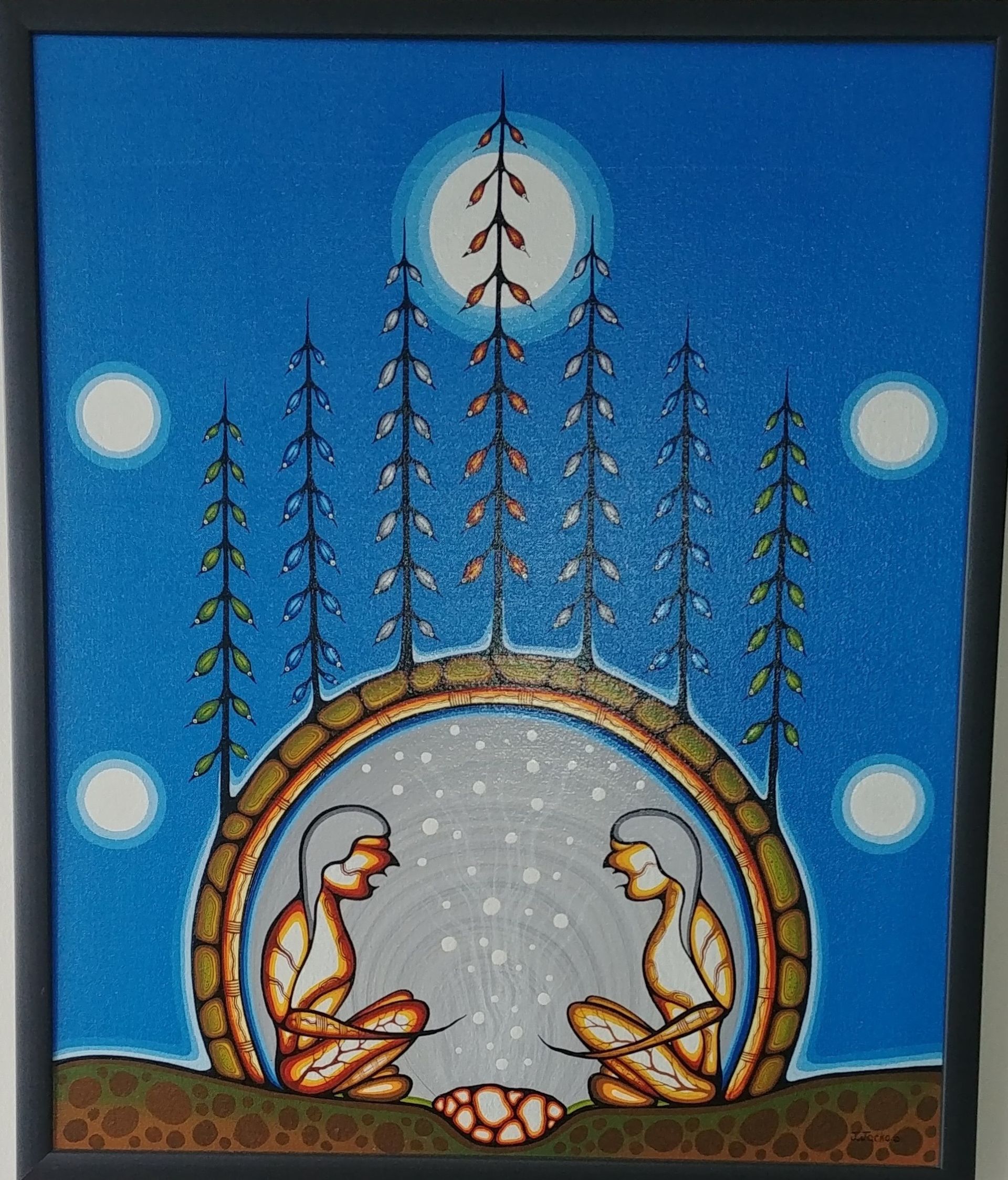A H Harry Oussoren • January 28, 2020
From One Generation to Another - 2nd Post
Heathens, You Say?
Heathens! From the 21st Century vantage point this word has no place in common parlance.
Hindsight is, of course, a great advantage for anyone trying to look into the past. It may not be 20-20 as some allege, but it does offer perspectives that may not be accessible to the ones who lived the past.
My father researched and wrote his thesis on the missionary principles of William Carey in a context of animosity after Nazi occupiers had brought both Rotterdam and our city, Middelburg, to quick capitulation with bombs and occupying forces. He and other burgers knew something about bending the knee, if not hearts, to stronger destructive powers that must be resisted.
He also lived in a time when colonialism had not quite hit the wall of nationalism. Right after World War II, Dutch armed forces were fighting Indonesian nationalists seeking their liberation from colonial superiority assumptions and enforced control.
In the Netherlands then, the idea of being a colonial power seemed "normal" even as Indonesians considered it alien and oppressive. Dutch people, including missionaries, assumed that, notwithstanding local resistance, they were part of a larger mandate to bring light and civilization to people living in darkness and ignorance. The racist "white man's burden" had not yet left the geopolitical and religious stage. And while resistance to the Nazi occupation was an understandable given, the resistance to Dutch colonial occupation seemed rebellious and ungrateful.
Missionaries and mission advocates of the post-war era still shared William Carey's assumption that the objects of missionary activity were "heathens" and "pagans" - people governed by superstitions, "false" beliefs, and idols.
In 1788 Carey, generally regarded as the initiator of the modern Protestant Christian missionary movement, published a leaflet entitled: "An Enquiry into the obligations of Christians to use means for the conversion of the Heathens." The core aim of a Christian missionary enterprise, he argued, was to convert heathens to Christian faith.
Not everyone in the leadership of English churches agreed with the obligation Carey advocated. Baptist clergyman Dr. John Ryland expressed the sentiments of many when he countered Carey's argument, saying: "When God pleases to convert the heathen, He'll do it without consulting you or me. Besides, sir, can you preach in Arabic, in Persian, in Hindustani, Bengali? There must first be another pentecostal gift of tongues." (p. 29 in Thesis)
Resistance to Carey's enthusiasm for mission was, however, based not on anthropological assumptions about needing to respect an other's humanity, but on ecclesiological assumptions which left little room for the unfamiliar world beyond borders. While Carey was unable to transcend the presumed superiority of his era, he did nonetheless shake the ecclesiological status quo,
gradually gaining support from local Christians in England for missionary endeavors globally.
That missionary philosophy and zeal spilled over into Canada too, of course. After centuries of British and other European missionary activity based on similar assumptions, the United Church of Canada finally arrived at the point in 1986 of confessing its sin in its "Apology to First Nations People". The Moderator, The Right Rev. Bob Smith, spoke on behalf of the General Council:
"Long before my people journeyed to this land your people were here, and you received from your Elders an understanding of creation and of the Mystery that surrounds us all that was deep, and rich, and to be treasured.
We did not hear you when you shared your vision. In our zeal to tell you of the good news of Jesus Christ were were closed to the value of your spirituality.
We confused Western ways and culture with the depth and breadth and length and height of the gospel of Christ.
We imposed our civilization as a condition of accepting the gospel.
We tried to make you be like us and in so doing we helped to destroy the vision that made you what you were. As a result, you, and we, are poorer and the image of the Creator in us is twisted, blurred, and we are not what we are meant by God to be.
We ask you to forgive us and to walk together with us in the Spirit of Christ so that our peoples may be blessed and God's creation healed."
Sentiments of superior knowledge and prejudice, too often racially driven, against different faith understandings long held sway in the occidental Christian world.
So it is with this awareness of colonial and missiological assumptions that my father's study of William Carey's work has to be evaluated in the 21st Century.
Some might argue that these assumptions are the fatal flaw that condemns the entire missionary movement.
I will suggest that certainly this flaw cannot be overlooked; but I also believe there remains a sacred mandate for Christians to go beyond themselves with healthy and respectful relationships with people of diverse faiths for mutual sharing of wisdom, truth, and love to embrace the reign of Shalom which the Divine wills for the one human family and for all Creation.
Subsequent postings will elaborate on this conviction.


